Mozambique: Metata Health Centre reopens in Balama after major renovation supported by the Aga Khan ...
Mozambique working with IOM to protect migrant workers
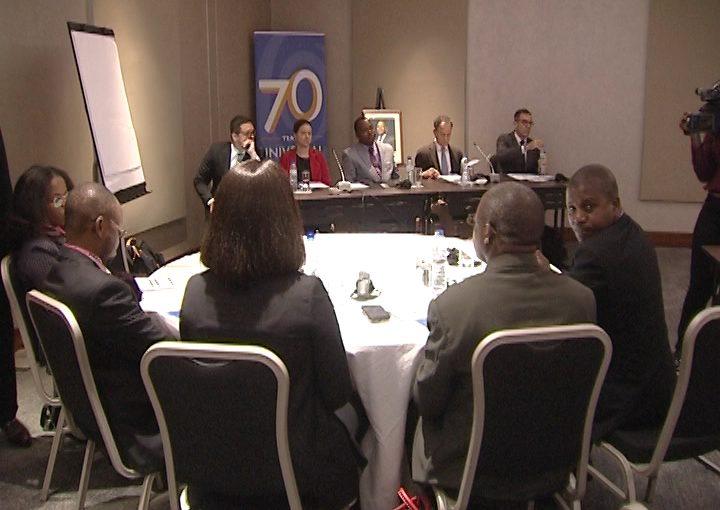
Photo: TVM
The Mozambican government is working with the UN Migration Agency (IOM), International Labour Organization (ILO), and the United Nations Office of the High Commissioner for Human Rights (UNOHCHR), to strengthen the protection of migrant workers.
On Tuesday, a four-day training event opened in Maputo to improve government officials’ ability to implement the International Convention on the Protection of the Rights of all Migrant Workers and Members of their Families (CMW). The event will enhance their ability to deliver reports on the convention and provide technical guidance.
The convention sets minimum human rights standards for migrant workers and their families, with a special focus on eliminating the exploitation of their labour.
Speaking at the opening of the seminar, IOM Mozambique’s Chief of Mission, Katharina Schnoering, explained that immigrants face enormous difficulties in accessing justice due to their inability to speak the local language, lack of local knowledge, and restricted funds.
Schnoering stressed how immigrant workers contribute to the country’s development and therefore deserve all the support the legal system can offer to protect them from abuse. She added this is why it is necessary for the government to address problems in protecting immigrants, which will involve creating stability, educational opportunities, and work.
She pointed out, “Mozambique is member to seven international treaties and optional protocols since 2013 and it was one of the three countries in Southern Africa to ratify this convention”. She added, “I want to take the opportunity to congratulate the government of Mozambique for this important step. Now, it is also important to work on the domestication of the Convention into the Mozambican legislation so that these commitments become a reality”.
The national director for human rights and citizenship in the Ministry of Justice, Albachir Macassar, announced during the opening session that Mozambique has already ratified seven of the nine key treaties drawn up by the United Nations covering the treatment of illegal migrant workers inside the country and Mozambicans living illegally in other countries.
Macassar stressed, “just because a person is in a country illegally does not mean they can be treated as animals” and lamented that sometimes Mozambicans have been deported inhumanely.
In his contribution, Marcoluigi Corsi, the acting UN Resident Coordinator and UNICEF representative in Mozambique, stated, “the main objective of the reporting process is that the treaty bodies evaluate the level of implementation of the state duties regarding the treaties. The reporting of the member state works as an opportunity to evaluate and debate human rights issues in the country and identify problems and areas that require more attention”.
Corsi said the training session shows the Mozambican government intends to implement the convention and comply with its human rights obligations. He added that this will also improve the quality of life of its citizens. However, he pointed out, “for this, it is important Mozambique takes advantage of this technical support because it will provide a good framework for the state, through which it can monitor the implementation of the recommendations about the mechanisms for human rights in collaboration with other interested parties”.
The Permanent Secretary in the Justice Ministry, Arlindo Langa, said that the training is a valuable opportunity to reflect on the actions undertaken to ensure the protection of human rights, as well as to discuss how to improve the current situation.
Among those facilitating the event are four human rights specialists working at UNOHCHR, and two members of the Mozambican inter-ministerial committee, representing the Ministry of Justice and the Ministry of Labour. The training focuses on the reporting mechanisms to the treaty bodies while the workshop will discuss how to initiate the process of domestication and the obligations that come with domestication of the convention. It will also help participants to identify legal, policy and institutional gaps in Mozambique.
IOM points out, “Mozambique is a country of origin, transit and destination for people engaged in complex mixed migration movements and the country has increasingly seen mixed movements coming from the East and Horn of Africa. Due to their immigration status, inability to speak the local language and unfamiliarity with the Mozambican context, migrants are often not afforded access to justice or the rule of law. Providing technical support on the domestication of the convention, will ensure that the rights of migrant workers are guaranteed and applied”.
The event is being attended by representatives of various state bodies, civil society, and other partners.


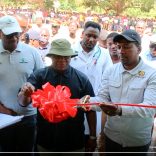

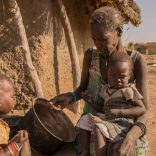
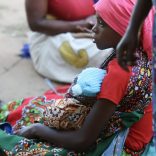

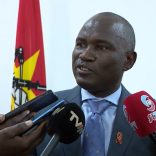





Leave a Reply
Be the First to Comment!
You must be logged in to post a comment.
You must be logged in to post a comment.